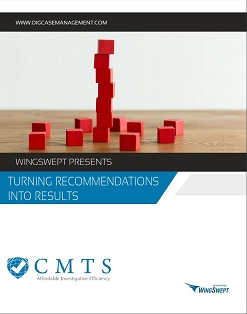Why are great suggestions ignored?
Among the biggest benefits an investigative office provides to both agencies and taxpayers are the list of recommendations they include in their findings. Some of these recommendations are monetary recommendations, while others are focused on improving the results of agency programs. These recommendations are quantifiable, specific, and many of them are of objective monetary value. Despite this, many of them go unimplemented for years, and some go decades without attention.
A great example of this is the Health and Human Services OIG’s Compendium of Unimplemented Recommendations, most recently released in May of 2017. This document highlights the top 25 unimplemented recommendations that the IG office considers to be the most valuable. While many of the recommendations in this Top 25 list are fairly recent, four findings reference reports that are five or more years old. Among recommendations not included in the top 25, some date back as far as 2005.
Another example is the department of Veterans Affairs OIG, which told Congress this year that the agency’s data may not be safe in terms of confidentiality, integrity, and availability. This is the seventeenth year that they’ve told Congress about this problem. Given all of the other challenges the Veterans Affairs department is currently facing, it’s not surprising that this hasn’t been fixed since it was identified (again) in 2017.
If the Inspector General’s office is responsible for identifying agency problems and bringing them to the attention of the agency’s oversight group (the US Congress, in this case) how do recommendations go for years without being implemented? There are plenty of reasons for agencies to fail to implement recommendations. Many state and federal agencies are large and difficult to reform. Staff come and go, and constantly shifting top-level appointees make mission continuity difficult. Finally, just because a reform is at the top of an investigator’s list doesn’t mean that it’s at the top of the agency head’s list; it may be ignored while other changes are completed instead. This can’t all be fixed by an Inspector General, or by any investigative executive.
Much of this is out of the control of investigators, but what investigative agencies can do is to make their findings as actionable as possible. The basic definition of actionable insight is using data to provide concrete, specific recommendations – but there are a range of things you can do with your data to make it more likely that agency officials will take the actions you’ve identified as money-saving, time-saving or results-improving. Many of them fall into three categories: making your insights actionable, making your insights demand action, and making your insights noisy.
Click or tap here to read the Turning Recommendations Into Results eBook.

